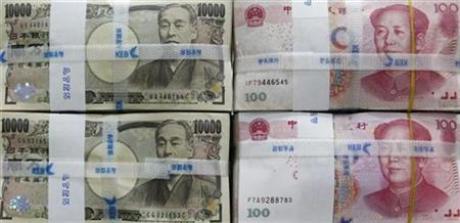Business & Finance Club - Beijing : When China began its reform process 30 years ago, no part of the polity, economy or society remained untouched — including Buddhist temples which were rebuilt on elaborate scales to allow a sliver of religious freedom.
The same thoroughness is in evidence as China ignores Western pressure for swift currency appreciation but turbo-charges ahead to internationalise the renminbi or yuan.
China has been trying to promote the use of its currency outside its borders in recent times, with the explicit goal of displacing or at the least competing with the US dollar as the world's reserve currency.
In this scheme of things, Hong Kong remains a launch pad for most of its bolder initiatives to transform its financial services sector and globalise the currency.
The regime's single-minded determination to take maximum advantage of Hong Kong's sophisticated financial markets now comes with the planned launch of a ‘mini-QF2' programme.
Under this qualified foreign institutional investors' scheme, yuan deposits held offshore can be channelled into mainland China's equity markets. The Hong Kong Exchanges and Clearing Ltd will launch yuan-denominated securities products next year which will enable this.
Under the present system, Chinese investment firms are only allowed to raise money domestically to invest in the markets.
The mini-QF2 is part of an eight-year-old QF2 programme, which allows foreign fund managers to invest in Chinese stocks and bonds on behalf of foreign investors, using money raised overseas.
But the mini-QF2 scheme will allow Chinese brokerages and fund companies to do the same under separate quotas. The overall pool will be initially capped at 20 billion yuan (Dh11.01 billion), with 80 per cent for bonds and the remainder for stocks. The mini-QF2 is thus a major step in the Chinese government's push to expand the yuan business in Hong Kong.
China may generate much hostility in the Western world over the value of its currency, but it's on firm ground closer home.
Hong Kong administrators are eager to make more efforts to integrate with the mainland, especially to take advantage of renminbi internationalisation opportunities and develop its offshore yuan business.











